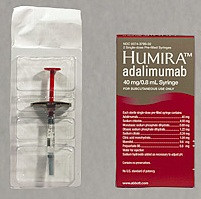Since companies started developing biosimilar meds, the question for healthcare systems has been how much money they're actually going to save. With a new report released Tuesday, the IMS Institute for Healthcare Informatics thinks it has some answers.
 IMS sees biosimilars delivering total savings of as much as $110 billion to health systems across the U.S. and Europe through 2020, it says, thanks to a growing acceptance of the meds and a pipeline of up-and-coming copycats.
IMS sees biosimilars delivering total savings of as much as $110 billion to health systems across the U.S. and Europe through 2020, it says, thanks to a growing acceptance of the meds and a pipeline of up-and-coming copycats.
The way IMS sees it, the market for biologic meds losing patent protection between 2015 and 2020 across France, Germany, Italy, Spain, the U.K. and the U.S.--such as AbbVie's ($ABBV) Humira and Sanofi's ($SNY) Lantus--is sizable, totaling €42.3 billion ($47.4 billion). And with nearly 50 distinct biosimilars coming up through the pipeline, IMS expects a "highly competitive marketplace" to take shape over the next 5 years.
But that $110 billion projection is far from a sure thing. A lot of the savings potential in Europe will "depend on policy and implementation approaches" that so far have differed across the EU, IMS notes. That "considerable variation" isn't a good sign, IMS figures; instead, it suggests that "not all markets are ready to benefit from the potential offered by the forthcoming generation of biosimilar products."
The U.S. has its own set of obstacles, too. There, IMS predicts that "stakeholder education and incentives will play a vital role in ensuring biosimilars deliver their full potential."
And plenty of pharma companies out there hope that those hurdles foil the knockoffs-makers out to copy their reference products. Johnson & Johnson ($JNJ) CEO Alex Gorsky, for one, recently reminded investors that "biosimilars are not generics" in an effort to allay fears of a sharp Remicade decline in the U.S. The drug has been on a tear in the U.S. thanks to biosim maker Celltrion, leaving J&J partner Merck ($MRK) feeling the pain.
Other players, though, are more gung-ho to make biosimilars work--including pharmacy benefits managers like Express Scripts ($ESRX)--because they stand to save when they reimburse for the less expensive meds.
But if payers want to capitalize, they'd better get moving on a strategy that optimizes the benefits of biosimilars, IMS cautioned. "The story of biosimilar medicines over the past 10 years has been one of slow acceptance, with payers, physicians and patients exhibiting a significant degree of wariness about these new treatments," the report authors wrote. "This very caution is contributing to the risk that stakeholders will miss the biosimilar opportunity over the coming years. Payers simply cannot afford to further bide their time."
- read the report
Special Reports: The 10 best-selling drugs of 2013 | Top 20 generics companies by 2014 revenue